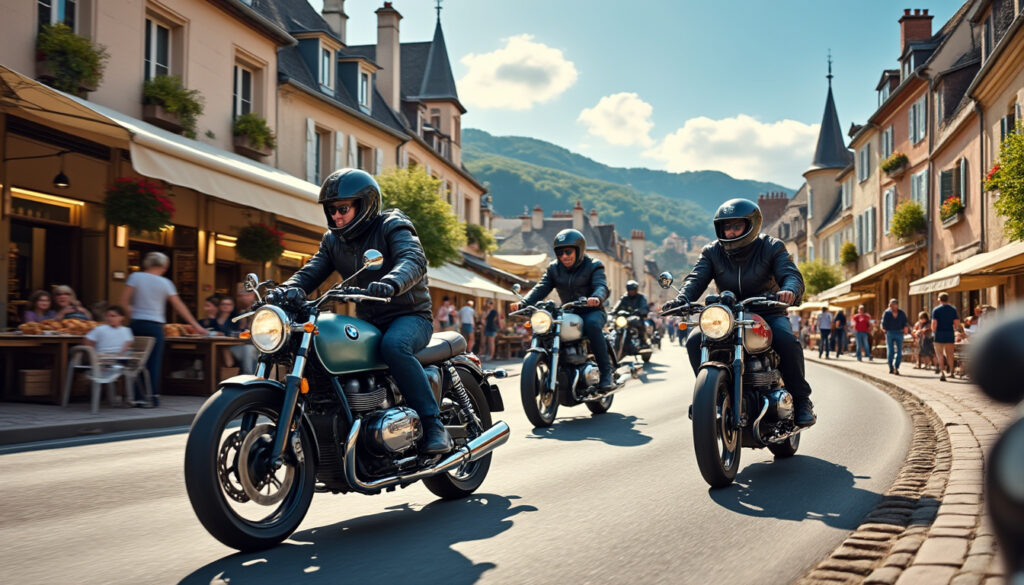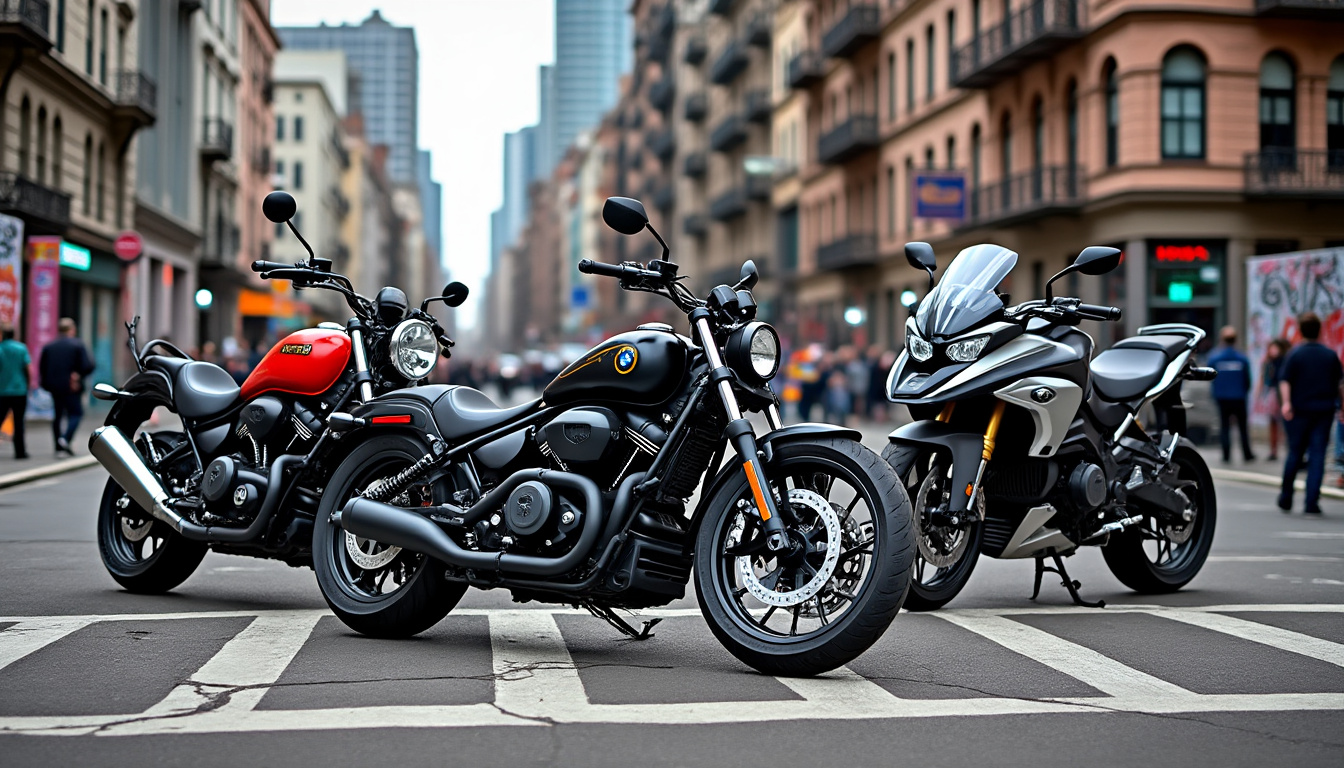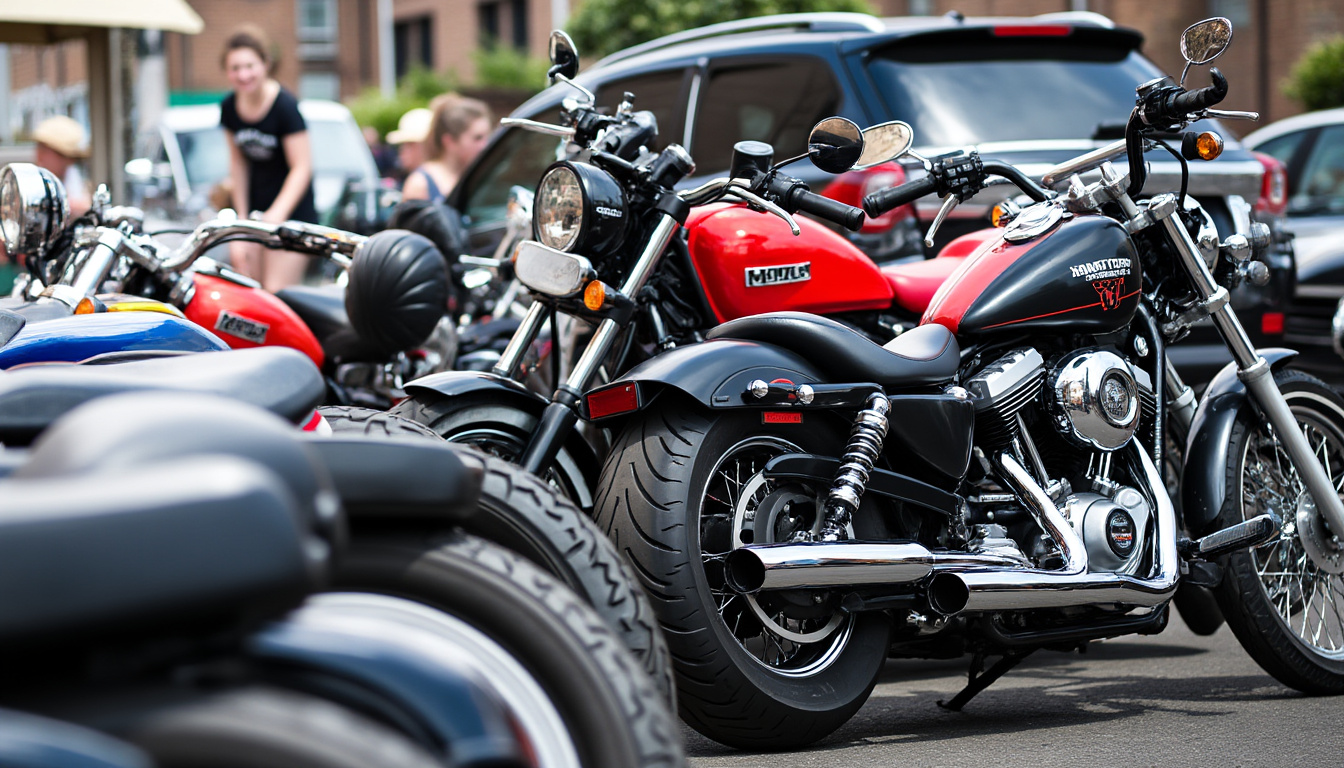This Saturday, bikers will traverse France: discover the cities that will resonate with their engines

This Saturday, thousands of motorcyclists will gather in about fifteen cities across France to express their dissatisfaction with a policy that disrupts their traffic habits. With various implications depending on the regions, low emission zones (ZFE) are expected to transform the roads into scenes of noisy and colorful demonstrations. The Angry Bikers Federation (FFMC) is mobilizing and calling for unity to defend the rights of two-wheelers, who feel threatened by these regulations deemed unfair.
- The reasons for motorcyclists' mobilization
- The cities affected by the demonstrations
- The implications of ZFE on traffic
- The different types of participation in the demonstration
- The challenges for motorcyclists in 2025
The reasons for motorcyclists' mobilization against ZFE
The low emission zones, which came into effect at the beginning of 2025, have generated significant dissatisfaction among road users, particularly motorcyclists. These zones restrict the circulation of many vehicles in order to reduce air pollution. Motorcyclists, who feel marginalized, view these restrictions as an unjust exclusion of their mode of transport. In its latest communication, the FFMC emphasized that these measures do not sufficiently take into account the specificities of motorized two-wheelers, particularly their role in the fluidity of traffic and the reduction of urban congestion.
The ZFE impose a Crit'Air sticker system, classified from 1 to 5, which determines which vehicle can enter these zones. Older motorcycles, often poorly classified, are thus forced to stay away from these areas, which has consequences for their daily use. The FFMC insists that motorcyclists do not represent a significant part of the pollution, while utility vehicles or trucks continue to circulate freely.
Furthermore, the gradual implementation of ZFE depending on the cities creates a lack of consistency and clarity in the regulations. Motorcyclists often find themselves uncertain about the areas where they can ride. This confusion fuels growing frustration, making their riding experience difficult and, in some cases, tinged with arbitrariness.
The testimonies of motorcyclists
- Anne, a motorcyclist in Lyon, states: "We feel like second-class citizens, simply because we have chosen a more compact and efficient mode of transport."
- Marc, a motorcyclist from Paris, adds: "Motorcycles should be seen as a solution to traffic problems, not as a threat to the environment."
A movement rooted in social reality
The movement of angry motorcyclists is not new. Countless demonstrations have been organized over the years to defend various causes, ranging from road safety demands to the defense of the rights of two-wheel users. These demonstrations aim to raise public authorities' awareness of motorcyclists' concerns. By partnering with anti-ZFE collectives, such as Les #gueux, the FFMC strengthens its actions and hopes to reach a broader audience.
| City | Date of ZFE implementation | Status for motorcyclists |
|---|---|---|
| Paris | 01/01/2025 | Severe restrictions for older motorcycles |
| Lyon | 01/01/2025 | Fear of being excluded from city centers |
| Strasbourg | 01/01/2025 | Demonstrations already organized |

The cities affected by the motorcyclists' demonstrations
This Saturday, the mobilization of motorcyclists across France will focus on about fifteen cities, all concerned about the effects of ZFE on their daily lives. The gatherings are designed to be both visible and symbolic, allowing protesters to make their voices heard not only for themselves but also for a community often overlooked in public debate.
Here is the list of cities mobilized for this day of demonstration:
- Annecy
- Metz
- Nice
- Saint-Etienne-du-Rouvray
- Paris
- Le Mans
- Cherbourg
- Lyon
- Limoges
- Toulouse
- Nantes
- Niort
- Brest
- Strasbourg
- Pontault-Combault
Each city will have its own dynamic during the demonstration. For example, in Toulouse, approximately 1,500 motorcyclists are expected to rev their engines between the city center and the ring road. In Lyon, protesters will gather in Place Bellecour, an iconic location capable of creating a strong visual impact. Meanwhile, in Cherbourg, a procession of two-wheelers will deliver a book of grievances to local elected officials, this approach aims to establish a dialogue with the authorities and clearly express their demands.
The challenges posed by the mobilization
Organizing such a demonstration is not without its challenges. The FFMC has opted for a static gathering, avoiding noisy marches and processions that could harm the image of motorcyclists. The goal is to change the often negative perception surrounding two-wheelers. By emphasizing a peaceful approach, the organizers hope to attract broader support from motorists, who may also feel concerned about the new regulations.
However, the question remains: how can motorcyclists truly make their voice heard in a context where regulations continue to evolve? This largely depends on the organizers' ability to maintain a link between motorcyclists and decision-making bodies.
The implications of ZFE on motorcyclists' traffic
The ZFE represent a significant upheaval in how motorcyclists can navigate major urban areas. In previous years, motorcycles were often seen as an effective mobility solution; today, they seem to become pariahs on urban roads. These restricted zones highlight several key issues, both for motorcyclists and other road users.
The motorcyclists' criticisms of ZFE regulation
Many motorcyclists argue that the ZFE do not take their specificities into account. Indeed, motorcycles, by their very nature, are less polluting in terms of CO2 emissions compared to cars. Additionally, they play a crucial role in alleviating traffic congestion. The ability for motorcyclists to ride in between lanes is often cited as a solution for smoother traffic flow and reduced travel time.
Nonetheless, the new regulations seem to ignore these advantages and focus solely on pollution criteria, which do not account for the realities of urban traffic. Therefore, motorcyclists demand a redesign of evaluations to ensure that their mode of transport is considered in any traffic limitation measures.
The impacts on local economy
- Reduction of local spending due to restricted access to certain areas
- Punishment for delivery companies using motorcycles
- Concerns about a decline in tourism in certain cities
| Impact | Description |
|---|---|
| Traffic | Restriction on many routes for motorcycles |
| Economy | Impact on transport and delivery businesses |
| Perception | Feeling of rejection among motorcyclists and other road users |

The different types of participation in the demonstration
For this day of mobilization, participants are encouraged to express themselves in different ways. This aligns with an approach that is both active and inclusive, allowing a wide range of people to participate in actions without restrictive modalities.
The different participation options
Motorcyclists are invited to gather on foot, by motorcycle, or even by car. This flexibility aims to bring together not only motorcyclists but also motorists who feel affected by recent changes, particularly regarding ZFE. This could be an opportunity to strengthen ties between the different categories of road users.
The demonstrations will primarily be static. This was emphasized by the FFMC as a way to improve the image of motorcyclists, often perceived as troublemakers due to the noise of engines. By opting for more peaceful actions, the organizers hope to adopt a constructive and engaged attitude.
Participation options:
- Participation by motorcycle to create a festive atmosphere
- Gathering on foot to show the extent of support
- Support by car for sympathetic motorists
This mode of mobilization should lead to a strong visual and symbolic impact, positioning motorcyclists as stakeholders in discussions about the future of urban mobility. On this day of May 17th, they will rev their engines all over France, aiming to assert their place on the road and defend their rights to circulate. With so many united voices, the message sent to politicians and institutions is clear: motorcyclists cannot be ignored. They demand respect and consideration of their reality.
Source: actu.fr
Leave a Reply

Articles relatifs